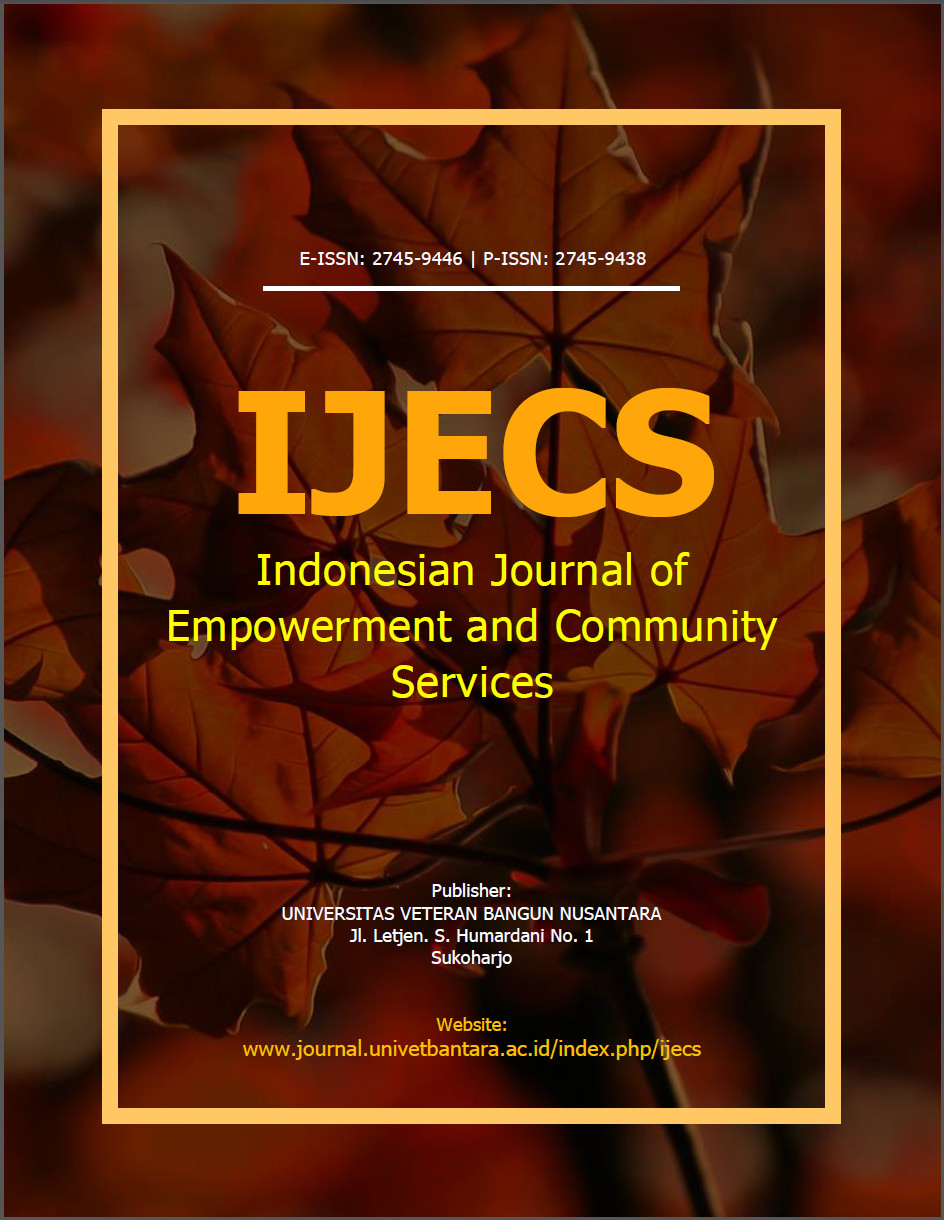Ergonomic Gymnastics Education in an Effort to Improve the Functional Abilities of the Elderly
DOI:
https://doi.org/10.32585/ijecs.v6i1.5758Abstract
ABSTRACT
Health is often neglected by the elderly. Lack of physical activity causes a decline in health quality of elderly. The same thing is also experienced by the elderly at Posyandu Lansia Desa Gentan. Another problem is the low of health awareness and education about the importance of Ergonomic Gymnastics for elderly. So, the PkM team initiate to provide Ergonomic Gymnastic education for the elderly at Posyandu Lansia Desa Gentan. This exercise applies ergonomic movements to correct the posture, nerve flexibility, blood circulation and improve the functional abilities of the elderly. The purpose of this program is to improve the functional abilities of the elderly, do light physical activities and improve the life quality of the elderly. The approach used is a qualitative approach with a descriptive analysis method. The subjects used were 30 elderly at Posyandu Lansia Desa Gentan. The method of implementing the activity is socialization and education, demonstration of ergonomic gymnastic movements, ergonomic gymnastic practice with the elderly, and discussion-question answer sessions. The activities flow are preparation, implementation and monitoring evaluation. This PkM program was succeeded in reducing the health complaints of elderly, before doing this exercise an average decrease of 72%. It means that Ergonomic Gymnastic has a good impact on the health of elderly, especially if they do routinely and consistently.
Keywords: Ergonomic Gymnastics, Elderly, Functional Abilities
Downloads
Downloads
Published
How to Cite
Issue
Section
License
Copyright (c) 2025 Brillian Nur Diansari, Rahmah Kusuma Ningrum Kusuma Ningrum, Winda Indriyani

This work is licensed under a Creative Commons Attribution-ShareAlike 4.0 International License.
Authors who publish with the IJECS: Indonesian Journal of Empowerment and Community Services agree to the following terms:
- Authors retain copyright and grant the journal the right of first publication with the work simultaneously licensed under a Creative Commons Attribution License (CC BY-SA 4.0) that allows others to share the work with an acknowledgment of the work's authorship and initial publication in this journal.
- Authors are able to enter into separate, additional contractual arrangements for the non-exclusive distribution of the journal's published version of the work (e.g., post it to an institutional repository or publish it in a book), with an acknowledgment of its initial publication in this journal.
- Authors are permitted and encouraged to post their work online (e.g., in institutional repositories or on their website) prior to and during the submission process, as it can lead to productive exchanges, as well as earlier and greater citation of published work.





